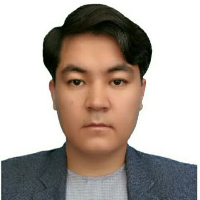Cultural Convergence and Redefining Common Identity in the Economic Cooperation Organization (ECO)
During many centuries humans realized the importance of co-existence and friendly interaction with their fellows for their survival against the surrounding dangers. It has long been believed that for peace and development, human societies must move towards integration and unity. In the last century, the first human attempts to create a regional union in Europe worked. The European Union was formed from the European Coal and Steel Organization. EU member states followed two important principles; one is peace and the other is a common identity with European roots. Although this union was economic in nature in the first step, but over the time, it was able to achieve its important goals and make Europe flourish in all areas. What the European Union has brought to the green continent is integration and common identity. After the successful experience of the European Union, other regions of the world were also encouraged to form regional organizations and unions. Since the formation of the European Union, regional organizations and associations have emerged one after another on every continent. ASEAN and SAARK in Asia, OAU and ECOWAS in Africa and MERCOSUR in South America were among the most important ones. Meanwhile, the Regional Cooperation for Development (RCD) was formed in the Middle East, which was dissolved in 1980 due to the revolution in Iran. In 1985, the Economic Cooperation Organization (ECO) was established at the initiative of Iran with the cooperation of Pakistan and Turkey (the same RCD members).
Research question:
“Why has the Economic Cooperation Organization (ECO) not yet become a successful union after four decades of activity?”
Research hypothesis:
To become Union, ECO needs to creat a common identity by analysing its roots, connections and cultural contexts.
Methodology and theoretical framwork:
To examine this hypothesis “Constructivism theory” has been chosen as the theoretical framework of the research. It will be a clear guide during the research. The method of this research is qualitative with a descriptive-analytical approach and based on a case study. The method of data collection is library and internet sources.
About four decades have passed since the establishment of the Economic Cooperation Organization. During this time, this organization has gone through many changes. ECO started working with the initiative of Iran in 1985 with the aim of becoming an efficient economic organization in the Middle East. A goal that became more unattainable over time. When seven Central Asian countries joined ECO in 1991, many observers expected it to become a successful union. The addition of the newly independent countries of Central Asia made this organization able to take steps toward realizing its long-standing goals, but now, after three decades, ECO is still not where it should be. The geographical area where ECO was established is a reminder of the thousands of years of co-existence of the people of this region far from today's political borders. With the formation and expansion of ECO, suddenly after the passage of several centuries, there were many hopes to return to the glorious days of the brilliant civilizations of this land. ECO is the epitome of the powerful "Heartland" empires throughout history. The legacy of centuries of co-existence for ECO; It is a rich culture by which it can help its member states to faciliate integration.
The question of this research becomes important because by reviewing the experience of the formation of the European Union, we see that this organization, like ECO, it was initially a regional economic organization with the membership of several countries, which gradually became a strong organization and a powerful union. The European Union started the process of redefining a common regional identity. A “common culture” is what brings countries together in a regional organization. In order to find the answer to its question, this research has briefly investigated the background of the formation of ECO. By reviewing the history of the formation of ECO, it is clear that the identity of ECO has always been changing. According to integration theory of constructionism, identity is not a permanent subject and changes according to the conditions throughout history. The establishment of ECO Cultural Institute has been an important step in the direction of cultural convergence in this organization. However, one of the reasons why this organization could not achieve consensus, success and unbreakable bond and appear in the form of a union is the lack of real attention to its cultural points.Undoubtedly, what causes the integration and unification of a group and the formation of a union will be addressing the issue of culture and its recognition. Culture is a “common heritage” of a region and a union. By exploring the common heritage of ECO member countries, one can take a step towards defining a common identity for this organization. Topics such as history, Nowruz, language, art, religion and the Silk Road are the six main legacies of ECO's identity. Each of these great legacies is an important artery in the direction of the formation of dynamic identity and meaning for the ECO organozation.
- حق عضویت دریافتی صرف حمایت از نشریات عضو و نگهداری، تکمیل و توسعه مگیران میشود.
- پرداخت حق اشتراک و دانلود مقالات اجازه بازنشر آن در سایر رسانههای چاپی و دیجیتال را به کاربر نمیدهد.



